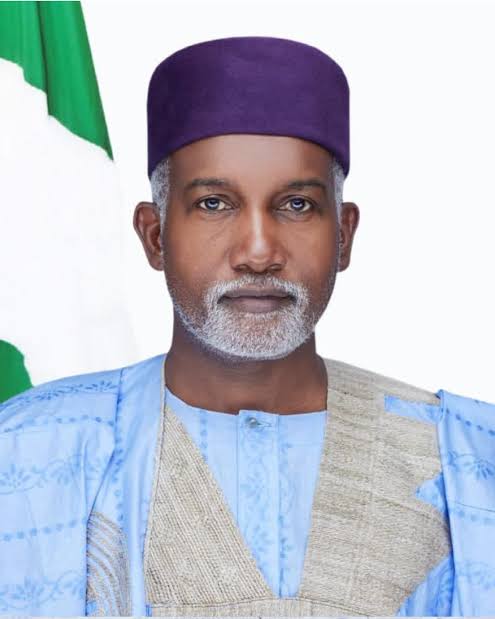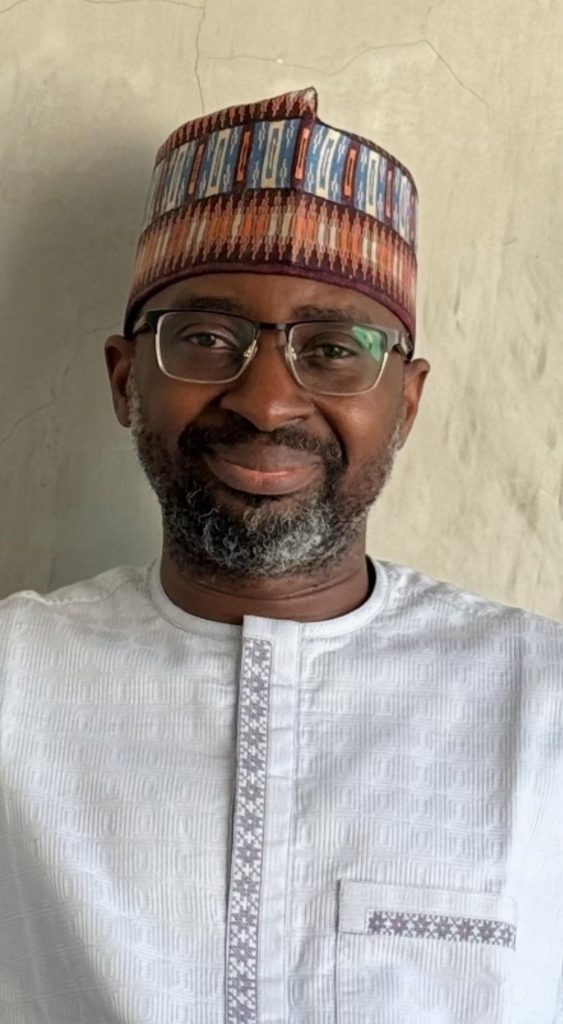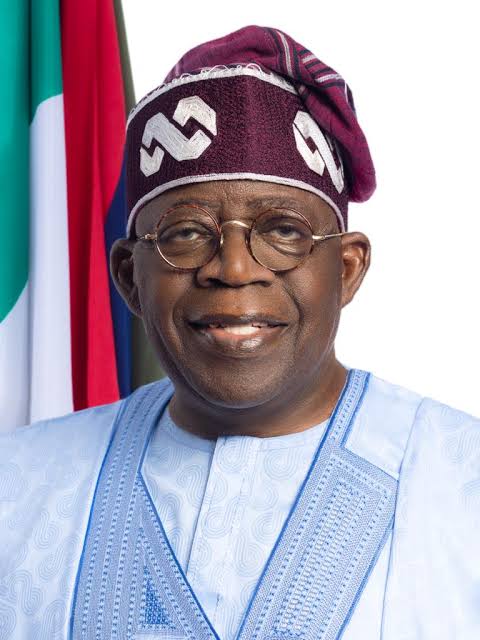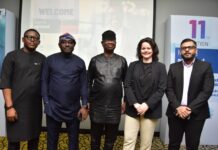WAES 2025 signals a defining moment in West Africa’s economic journey—and in this special analysis, ABDULLAHI MUSBAU, Head of Editorial, BusinessNG, Abuja, explains why it matters. Written during a chat with ALKASIM ABDULKADIR, Special Assistant on Media and Communications Strategy to the Honourable Minister of Foreign Affairs and Lead, Media and Communications for WAES 2025, the piece highlights how strategic leadership, youth inclusion, and private sector investment can transform the region. More than a report, it is a call to action—a push to rethink West Africa’s future as a unified, self-driven economic powerhouse..

As dawn breaks over Lagos, Abidjan, Accra and other cities across the West African region, a quiet but powerful transformation is underway. It is not marked by protests or political agitation, but by a deliberate and coordinated shift toward economic self-determination. This transformation is taking shape through the West Africa Economic Summit (WAES) 2025—a defining moment for the region, scheduled to take place on June 20 and 21 in Abuja, Nigeria.
WAES 2025 is more than just another high-level conference. It is the bold fulfilment of a promise made by Nigeria’s President, Bola Ahmed Tinubu, during his inaugural address as Chairman of ECOWAS. At the time, Tinubu committed to organizing a landmark summit that would harness the region’s collective economic potential. Now, that promise is materializing. The summit, themed “Unlocking Trade and Investment Opportunities in the Region,” is being positioned as a transformative forum for regional integration, investment promotion, and sustainable development. The ambition is to bring together leaders, policymakers, the private sector, and youth under one roof to shape a new economic vision for West Africa.
The West Africa Economic Summit draws inspiration from ECOWAS Vision 2050, which emphasizes “an ECOWAS of the Peoples: Peace and Prosperity for All.” The summit embodies that spirit by fostering a future where economic policies are driven by collaboration, where governments work hand-in-hand with the private sector, and where young people are not simply participants, but priority stakeholders. The summit is a recognition that West Africa must move past dependence, fragmentation, and missed opportunities to build a region defined by unity, prosperity, and resilience.
At the heart of the WAES 2025 agenda is the need for deeper private sector engagement. The summit acknowledges that governments alone cannot drive economic transformation. Entrepreneurs, investors, and corporate leaders are essential to reimagining the region’s future. The Business Expo and CEO roundtables—key features of the summit—will provide a platform for showcasing innovation, forging partnerships, and identifying cross-border investment opportunities. Financial institutions such as GTBank, UBA, Zenith Bank, and multinational conglomerates like Dangote Group are expected to play prominent roles, reflecting the importance of banking, telecoms, and industrial capacity in the region’s development.

With major West African firms operating across multiple countries, the summit is also expected to push for harmonized trade policies and the elimination of barriers to doing business across borders. There is strong emphasis on reducing restrictions that hamper the movement of goods, services, and people.
ECOWAS protocols already allow for freedom of movement, but implementation has been uneven. WAES is set to renew commitment toward making these frameworks more effective, removing the bureaucracy and inefficiencies that slow down regional commerce.
West Africa’s demographic profile is another strategic focus. With a median age of 18.2 years, the region is one of the youngest in the world. It is home to more than 400 million people, a population that is growing even as other regions grapple with demographic decline. WAES views this population surge not as a challenge, but as an opportunity. Through targeted sessions on job creation, education reform, digital skills, and entrepreneurship, the summit aims to unlock the potential of its youth.
From coding academies in Lagos to agritech incubators in Ouagadougou, young people are already shaping the region’s future. The summit’s organizers intend to elevate these voices, ensuring youth-led innovation is front and center.
This isn’t just about preparing the next generation—it’s about recognizing that the next generation is already here. As the WAES team puts it, “We’re planting the seeds now because tomorrow’s economy belongs to the young people sitting in classrooms and coding bootcamps today.” The idea is to embed youth at every level of the region’s economic blueprint, not just as beneficiaries but as active participants and drivers of change.
The broader economic landscape of West Africa reveals both immense promise and deep-seated challenges. The region’s GDP stood at approximately $600 billion in 2024, with Nigeria accounting for more than 60 percent of this figure. Nigeria’s economy is powered by oil, agriculture, and the soft power of Afrobeats and Nollywood. Côte d’Ivoire dominates the global cocoa market, responsible for about 40 percent of the world’s supply. Ghana and Guinea are rich in gold and bauxite, while Guinea also holds vast untapped reserves of iron ore. Agriculture continues to be the economic lifeblood for much of the region, employing nearly 60 percent of its population.
At the same time, the region faces headwinds. Political instability continues to cast a shadow over countries like Mali and Burkina Faso. More than 40 percent of the population lives in poverty, surviving on less than $1.90 a day. Climate change, food insecurity, and the lingering aftershocks of the COVID-19 pandemic remain pressing concerns. In 2020 alone, the pandemic caused an estimated GDP loss of $48.7 billion in the region.
WAES 2025 is positioned to address these challenges head-on. It will offer a space for high-level dialogue involving heads of state, ministers, civil society organizations, and development partners. Crucially, it will link the regional conversation to the broader African Continental Free Trade Area (AfCFTA), with a view to expanding intra-African trade and reducing the continent’s dependence on global supply chains.
The Minister of Foreign Affairs, Ambassador Yusuf Maitama Tuggar, recently outlined the framework of WAES in Lagos, emphasizing its alignment with Nigeria’s foreign policy strategy and regional priorities.
Speaking to private sector leaders and potential investors, Tuggar underscored the importance of attending the summit—not just to participate in discussions but to seize the opportunities on offer.
WAES will also feature what organizers are calling a “deal room”—a curated space where governments and companies can engage in direct investment negotiations. The deal room, powered by the Ministries of Foreign Affairs and Trade, is expected to unlock multimillion-dollar agreements, particularly in high-potential sectors such as agribusiness, fintech, and manufacturing. These sessions aim to go beyond networking, delivering concrete investment commitments that can be tracked and scaled.
Infrastructure will also be a critical area of focus. Projects like the Trans-West African Coastal Highway are slowly beginning to connect the region’s major cities, offering new logistical corridors for trade. The Trans-Sahara Gas Pipeline and the Atlantic Gas Pipeline, both originating from Nigeria, present further strategic opportunities to strengthen energy supply across West Africa and even into Europe.
Oil and gas discoveries in countries like Senegal and Mauritania add to the region’s growing importance in global energy markets.
Beyond fossil fuels, there is increasing momentum around renewable energy. With abundant sunlight, vast land, and growing technology adoption, countries are exploring solar, wind, and mini-grid energy options. WAES is expected to highlight these developments and provide a marketplace for sustainable energy investment. For West Africa, the future of energy isn’t just about extraction—it’s about innovation and equitable access.
WAES 2025 is also notable for the caliber of participants it is attracting. Confirmed attendees include President Bola Ahmed Tinubu of Nigeria, who will serve as the summit’s chief host, alongside President John Mahama of Ghana and President Alassane Ouattara of Côte d’Ivoire. The Nigerian federal cabinet is well represented, with Wale Edun, Minister of Finance, expected to lead conversations around fiscal reforms and sovereign financing; Dr. Jumoke Oduwole, Minister of Trade, outlining Nigeria’s industrial policy under AfCFTA; and Festus Keyamo, Minister of Aviation, addressing air connectivity and logistics.
Pan-African institutions will also take center stage. Dr. Akinwumi Adesina, former President of the African Development Bank (AfDB), is expected to announce new financing initiatives targeted at climate-smart agriculture, infrastructure, and youth enterprise.
Benedict Okechukwu, President of Afreximbank, will speak on support for regional payment systems and trade finance under the Pan-African Payment and Settlement System (PAPSS). Customs harmonization, trade facilitation, and security will also feature prominently, with Nigeria’s Comptroller-General of Customs, Alhaji Bashir Adewale Adeniyi, expected to unveil new anti-smuggling strategies for regional corridors like Lagos-Abidjan.
From the private sector, Aliko Dangote and Abdulsamad Rabiu are expected to lead conversations on manufacturing, infrastructure, and regional industrialization. These are not abstract debates—they are business strategies grounded in lived experience. Dangote’s cement plants and fertilizer operations already serve multiple countries. Rabiu’s investments in industrial parks and exports reflect a deep understanding of regional dynamics.
Outlook
WAES 2025 is thus more than an event—it is a platform for implementation. It seeks to move from idea to action, from dialogue to delivery. For countries like Benin, Burkina Faso, Cape Verde, Côte d’Ivoire, Guinea, and Nigeria, the summit provides an opportunity to align individual national priorities with a shared regional agenda.
Whether in cotton fields, gold mines, fisheries, cocoa plantations, or creative industries, the stories of West Africa are being woven together into a common narrative of possibility.
The significance of the moment cannot be overstated. With the world shifting toward regionalism and nearshoring, West Africa must seize this window to reimagine its place in the global economy. It must harness its natural resources, invest in its people, and leverage its geographic advantages to build competitive regional value chains.
WAES 2025 is not an end—it is a beginning. It is the launchpad for a new era of West African collaboration—confident, connected, and competitive. And while the journey toward economic sovereignty will not be easy, the energy around WAES 2025 suggests that the region is finally ready to take that step. Not as a fragmented collection of countries, but as a united economic force with the ambition—and now, the mechanism—to move forward together.
West Africa moves














